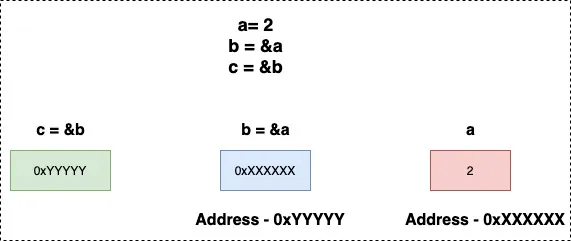The applications of Go language in software development include: Web development: built-in HTTP support and efficient concurrency model, suitable for creating HTTP servers. Cloud computing: lightweight and concurrency, suitable for building cloud-native applications. Microservices: Modular design and concurrency model simplify microservice communication. Data processing: concurrency support, channel mechanism and coroutine model to efficiently process large data sets.

Explore the application of Go language in software development
Introduction
Go language (also known as Golang) It is a modern open source programming language developed by Google. It is known for its superior concurrency, high performance, and code simplicity, making it ideal for a variety of software development use cases. In this article, we will explore the practical applications of Go language in different fields and demonstrate its capabilities through practical cases.
Web Development
The Go language is ideally suited for web development with its built-in HTTP support and efficient concurrency model. Its HTTP package provides convenient methods for handling requests, parsing form data, and setting headers.
Practical case: Create a simple HTTP server
package main
import (
"fmt"
"net/http"
)
func handleRoot(w http.ResponseWriter, r *http.Request) {
fmt.Fprintf(w, "Hello, World!")
}
func main() {
http.HandleFunc("/", handleRoot)
http.ListenAndServe(":8080", nil)
}Cloud computing
Lightweight and concurrency of Go language capabilities make it ideal for cloud computing. Its cross-platform compatibility and high-performance optimizations make it ideal for building cloud-native applications.
Practical case: Deploying a containerized application on Kubernetes
func main() {
myImage := "my-app-image"
myName := "my-app"
deployment := &appsv1.Deployment{
ObjectMeta: metav1.ObjectMeta{
Name: myName,
},
Spec: appsv1.DeploymentSpec{
Template: podTemplateSpec(myName, myImage),
},
}
// 将部署对象创建到 Kubernetes 集群
_, err := clientset.AppsV1().Deployments("default").Create(ctx, deployment, metav1.CreateOptions{})
if err != nil {
log.Fatal(err)
}
}Microservices
Modularization of Go language The design and concurrency model make it ideal for building microservices architectures. It has built-in support for RPC and messaging, simplifying communication between microservices.
Practical case: Using gRPC to build a microservice
// 服务端
func RegisterGreeterService(s *grpc.Server, svc GreeterServiceServer) {
pb.RegisterGreeterServiceServer(s, svc)
}
// 客户端
func NewGreeterClient(ctx context.Context, conn *grpc.ClientConn) (*GreeterClient, error) {
return pb.NewGreeterClient(conn)
}Data processing
Go language’s support for concurrency makes it Become an excellent choice for data processing tasks. Its channel mechanism and coroutine model provide efficient data processing and concurrent operations.
Practical case: Using Go language to process a large data set in parallel
func main() {
// 准备一个包含 1 亿个整数的切片
data := make([]int, 100000000)
// 创建一个缓冲通道,用于在协程之间并发传输数据
ch := make(chan int, 1000)
// 创建 10 个协程,每个协程处理 1000 万个整数
for i := 0; i < 10; i++ {
go func() {
for j := i * 10000000; j < (i+1)*10000000; j++ {
ch <- data[j]
}
}()
}
// 从通道中接收所有处理后的数据
var sum int
for i := 0; i < 100000000; i++ {
sum += <-ch
}
fmt.Println("处理后的数据总和:", sum)
}Conclusion
The Go language relies on its excellent Concurrency, high performance, and code simplicity find a wide range of applications in different software development fields. From web development to cloud computing, microservices and data processing, it has become an indispensable tool in modern software development. The practical cases shown in this article are just a few examples of the power of the Go language. As its ecosystem continues to grow, we look forward to seeing the Go language used in more innovative areas in the future.
The above is the detailed content of Explore the application of Go language in software development. For more information, please follow other related articles on the PHP Chinese website!
 变革性趋势:生成式人工智能及其对软件开发的影响Feb 26, 2024 pm 10:28 PM
变革性趋势:生成式人工智能及其对软件开发的影响Feb 26, 2024 pm 10:28 PM人工智能的崛起正在推动软件开发的快速发展。这一强大技术有可能彻底改变我们构建软件的方法,对设计、开发、测试和部署等各个方面都会产生深远影响。对于企图进入动态软件开发领域的企业来说,生成式人工智能技术的问世为它们提供了前所未有的发展机遇。将这一前沿技术纳入其开发流程后,公司可以大幅提升生产效率、缩短产品上市周期,并推出在激烈竞争的数字市场中脱颖而出的优质软件产品。根据麦肯锡的一份报告,预测到2031年,生成式人工智能市场规模有望达到4.4万亿美元。这一预测不仅反映了一种趋势,更显示出技术和商业格局
 软件开发中的人工智能应用:自动化与优化Sep 02, 2023 pm 01:53 PM
软件开发中的人工智能应用:自动化与优化Sep 02, 2023 pm 01:53 PM作为一项前沿技术,人工智能(AI)正在各个领域展现出巨大的潜力。在软件开发领域,人工智能的应用也引起了广泛关注。从自动化任务到代码优化,人工智能为开发人员带来了许多创新的方式来提高效率、质量和创造力。本文将探讨人工智能在软件开发中的应用,重点关注自动化和优化方面的发展自动化任务1.代码生成通过学习现有代码库,人工智能可以自动生成代码片段甚至完整的模块。这对于开发人员来说非常有帮助,能够快速创建基础框架,节省时间和精力。例如,一些人工智能工具可以根据需求生成样板代码,使开发人员能够更快地开始工作2
 什么是golangNov 22, 2022 am 10:33 AM
什么是golangNov 22, 2022 am 10:33 AMgolang是一种静态强类型、编译型、并发型,并具有垃圾回收功能的编程语言;它可以在不损失应用程序性能的情况下极大的降低代码的复杂性,还可以发挥多核处理器同步多工的优点,并可解决面向对象程序设计的麻烦,并帮助程序设计师处理琐碎但重要的内存管理问题。
 生成式AI将在十个方面改变软件开发Mar 11, 2024 pm 12:10 PM
生成式AI将在十个方面改变软件开发Mar 11, 2024 pm 12:10 PM译者|陈峻审校|重楼上个世纪90年代,当人们提起软件编程时,通常意味着选择一个编辑器,将代码检入CVS或SVN代码库,然后将代码编译成可执行文件。与之对应的Eclipse和VisualStudio等集成开发环境(IDE)可以将编程、开发、文档、构建、测试、部署等步骤纳入到一个完整的软件开发生命周期(SDLC)中,从而提高了开发人员的工作效率。近年来,流行的云计算和DevSecOps自动化工具提升了开发者的综合能力,使得更多的企业能够更加轻松地开发、部署和维护软件应用。如今,生成式AI作为下一代开
 Go语言在软件开发中的重要作用Mar 29, 2024 am 09:21 AM
Go语言在软件开发中的重要作用Mar 29, 2024 am 09:21 AMGo语言(又称Golang)是由Google开发的一种编程语言,从诞生之初便备受关注,其简洁、高效、并发性强等特点让它在软件开发中发挥着越来越重要的作用。本文将探讨Go语言在软件开发中的重要性,并结合具体的代码示例进行解析。一、并发编程Go语言天生支持并发编程,其goroutine和channel的机制使并发编程变得非常简单。goroutine是Go语言提供


Hot AI Tools

Undresser.AI Undress
AI-powered app for creating realistic nude photos

AI Clothes Remover
Online AI tool for removing clothes from photos.

Undress AI Tool
Undress images for free

Clothoff.io
AI clothes remover

AI Hentai Generator
Generate AI Hentai for free.

Hot Article

Hot Tools

Dreamweaver CS6
Visual web development tools

DVWA
Damn Vulnerable Web App (DVWA) is a PHP/MySQL web application that is very vulnerable. Its main goals are to be an aid for security professionals to test their skills and tools in a legal environment, to help web developers better understand the process of securing web applications, and to help teachers/students teach/learn in a classroom environment Web application security. The goal of DVWA is to practice some of the most common web vulnerabilities through a simple and straightforward interface, with varying degrees of difficulty. Please note that this software

WebStorm Mac version
Useful JavaScript development tools

Atom editor mac version download
The most popular open source editor

MinGW - Minimalist GNU for Windows
This project is in the process of being migrated to osdn.net/projects/mingw, you can continue to follow us there. MinGW: A native Windows port of the GNU Compiler Collection (GCC), freely distributable import libraries and header files for building native Windows applications; includes extensions to the MSVC runtime to support C99 functionality. All MinGW software can run on 64-bit Windows platforms.










